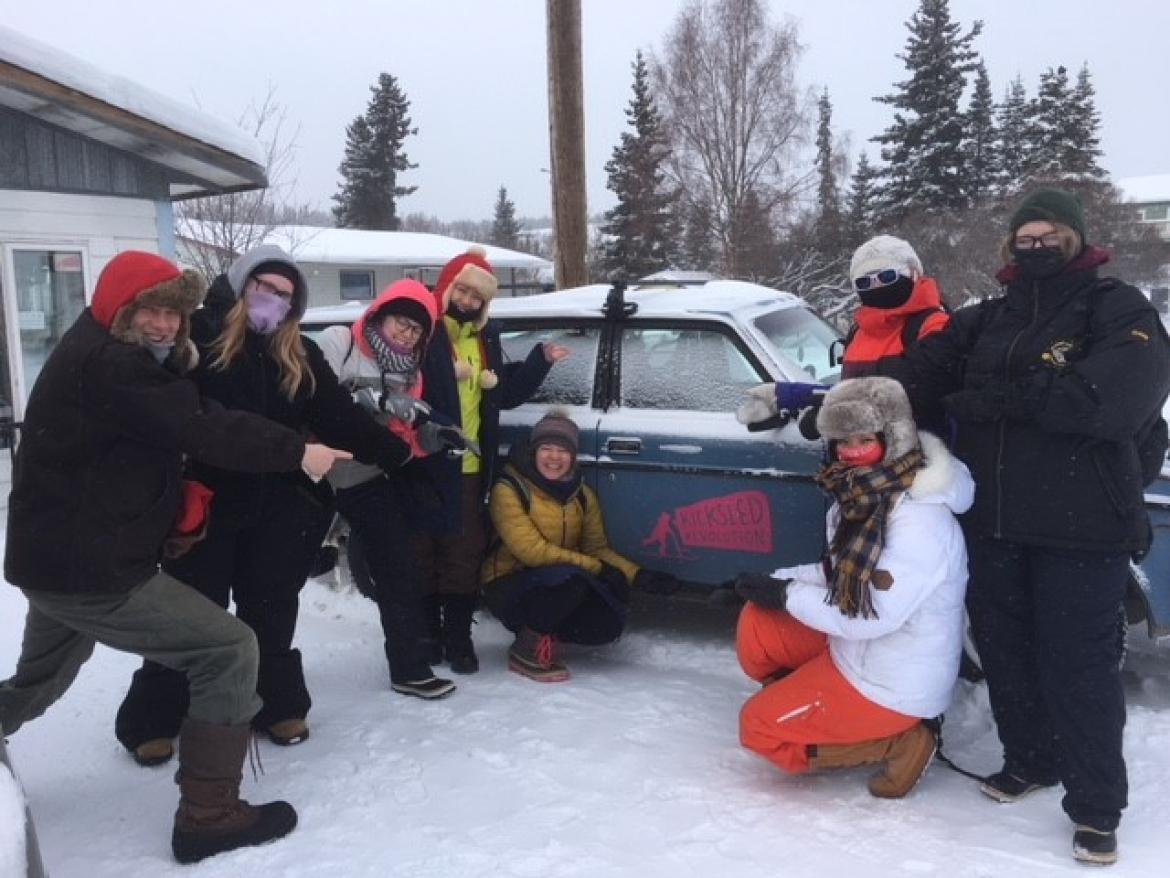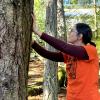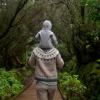
Field school participants brave the cold to go kicksledding.
March 19, 2018 - 1:30pm
Yukon provided stunning backdrop for immersive education experience in growing industry
In a changing climate, the importance of responsible tourism is top of mind for tour operators and tourists alike.
Vancouver Island University (VIU) undergraduate students in the Bachelor of Tourism program, and graduate students from VIU’s Master of Arts in Sustainable Leisure Management program and the University of Norway’s Master in Tourism program had a unique opportunity to participate in a field school in Yukon Territory. The six-day course gave them hands-on experience with tourism operators, planners and managers from public and private sectors working in this unique, delicate environment.
The field school, which ran February 25 to March 3, 2018, demonstrated the fun that can be had in the North, and provided learning from people in the industry on the challenges and opportunities, as well as what is required for day-to-day operations and logistics. Students participated in everything from glass-blowing to dogsledding and maple taffy-making. Daily seminars were held for learning.
“It was incredibly interesting and valuable to get an overview of Yukon tourism from different perspectives, and to be able to compare it to trends and statistics in other circumpolar regions,” said Lydia Harley, field school participant, and VIU student in Bachelor of Tourism Management. “I appreciated getting to interact and ask questions so freely in such an intimate and friendly professional setting. It gave me a better grasp on the progress of tourism in the Yukon.”
Tourism is on the rise in polar regions, and while there are many differences across polar nations, there are also compelling similarities: vast space, immense nature, small populations, natural resource-based economies, limited infrastructure for tourism (such as accommodations and transportation), and a lack of skilled workforce.
The field school examined tourism at the intersection of sustainable development in the northern polar region, said Dr. Suzanne de la Barre, a Professor in VIU’s Recreation and Tourism program and the Master of Arts in Sustainable Leisure Management, and field school organizer. She partnered with the University of Norway to deliver the program.
“Polar tourism is growing. The natural beauty and the uniqueness of northern cultures are leading to increasing awareness, which means more people want to visit these special places,” said de la Barre. “It also presents great career opportunities for our students. To be successful, our students need to understand the cultural and natural environment, as well as the tourism and community economic development issues and opportunities.”
All students were required to take the Yukon First Nations 101 online course developed by the Council for Yukon First Nations (CYFN) and Yukon College. This course gave participants an understanding of the Indigenous people on whose traditional territories they were visiting, their history, achievements and the ongoing challenges they face that are often shaped by the legacies of colonization.
“Anything we can do to support reconciliation through learning is part of our responsibility as educators,” said de la Barre.
To learn more about the program, read the field school blog. Learn more about VIU’s Bachelor of Tourism Management and Master of Arts in Sustainable Leisure Management.
-30-
MEDIA CONTACT:
Aly Winks, Communications Officer, Vancouver Island University
P: 250.740.6529 | C: 250.618.7930 | E: alyson.winks@viu.ca | T: @VIUNews
Tags: Sustainable Leisure Management | Tourism | Teaching and Learning






